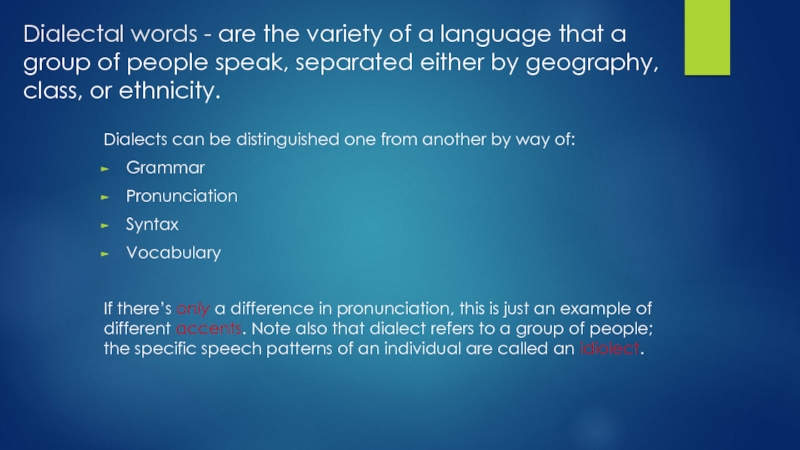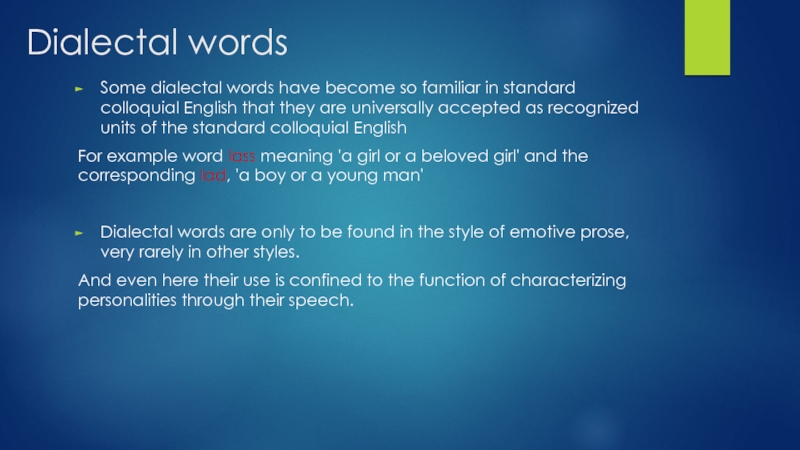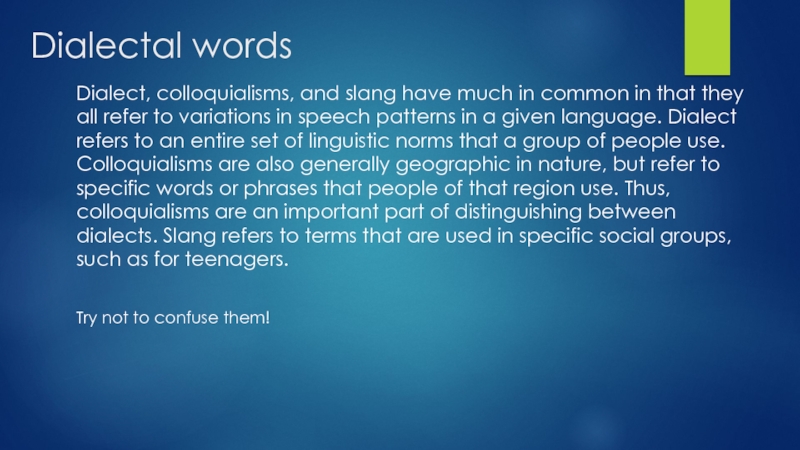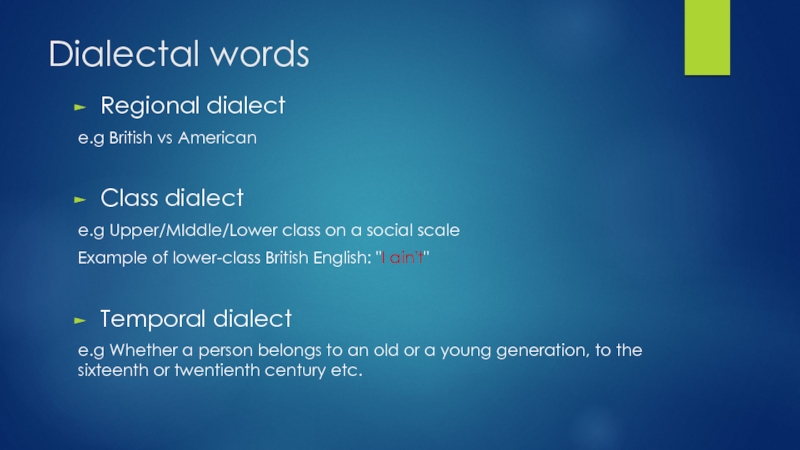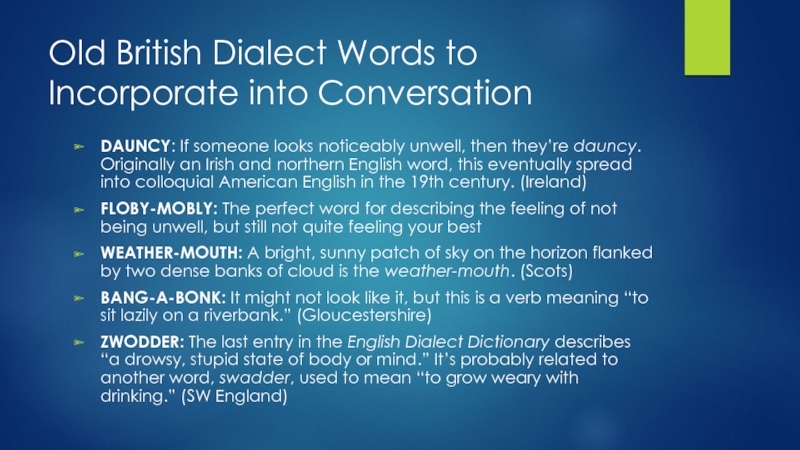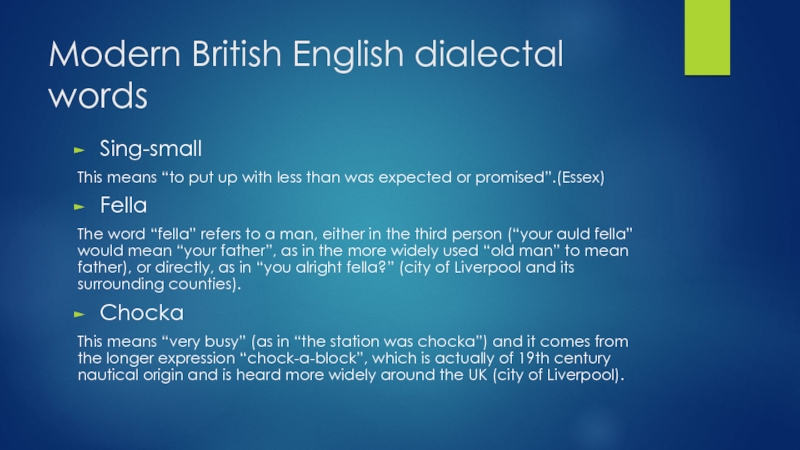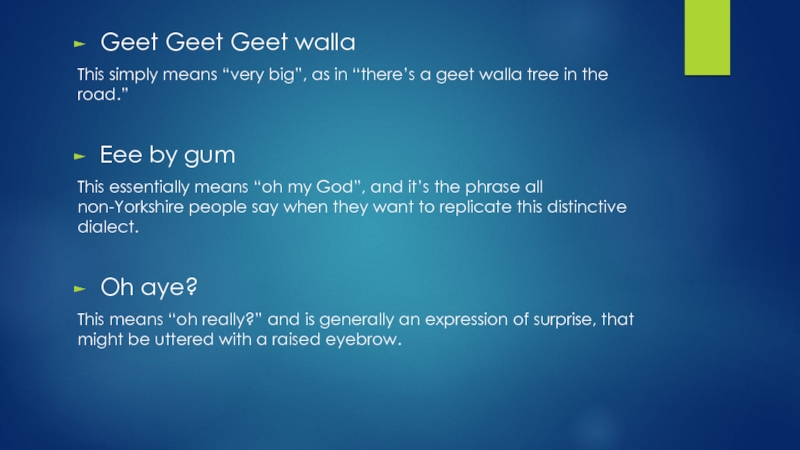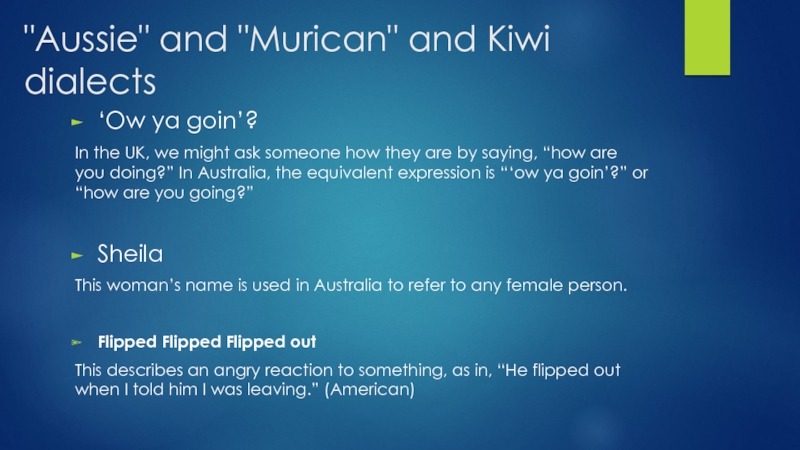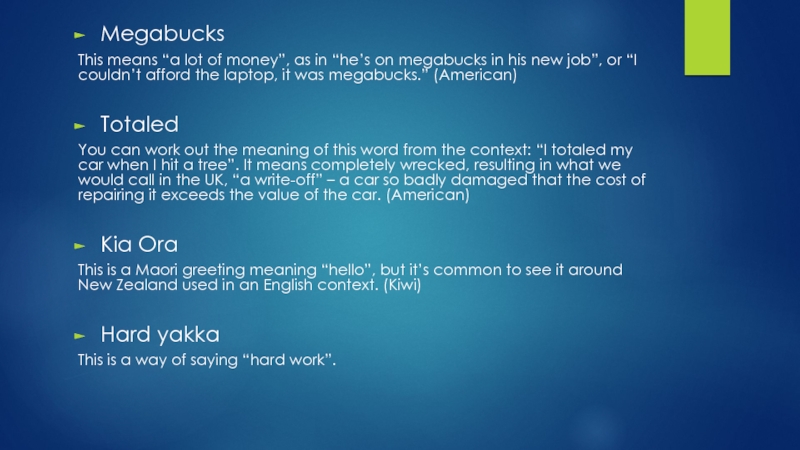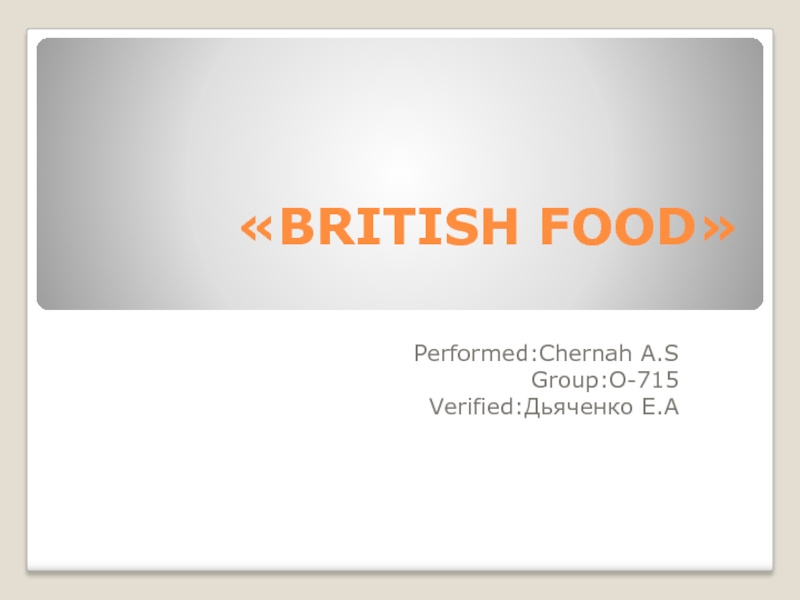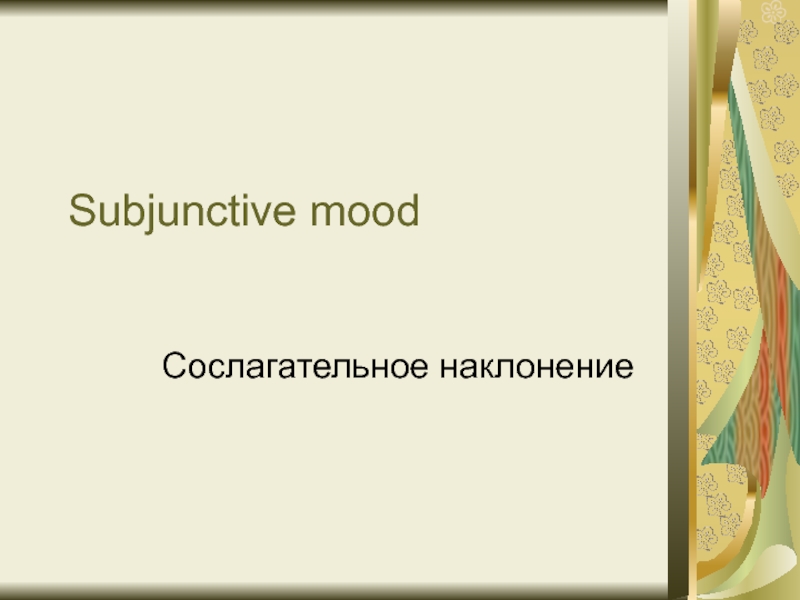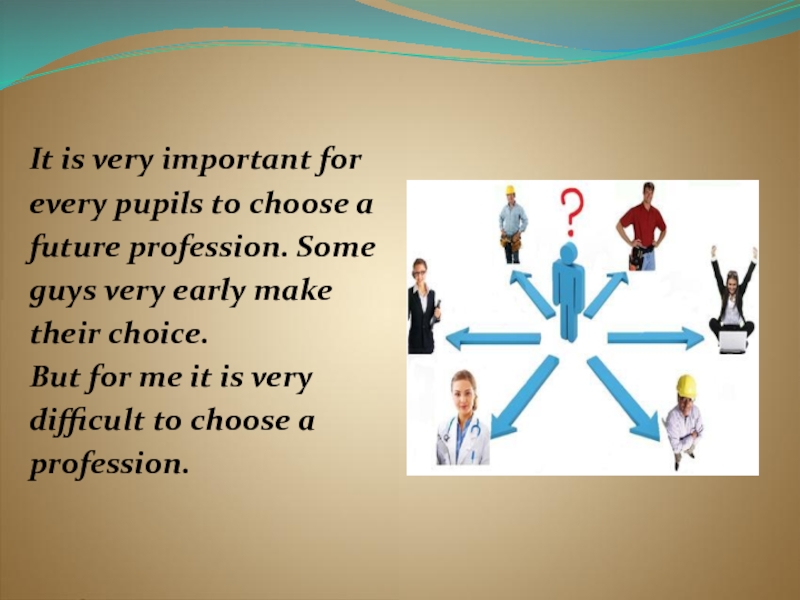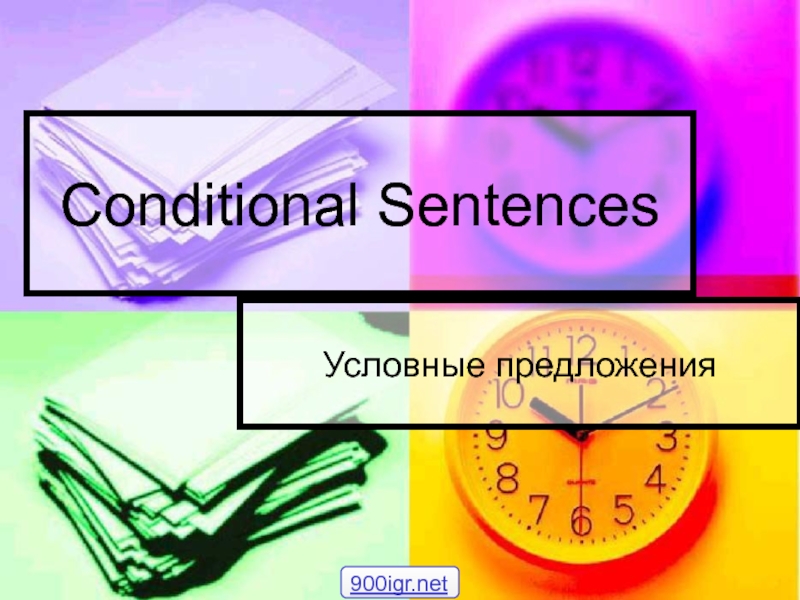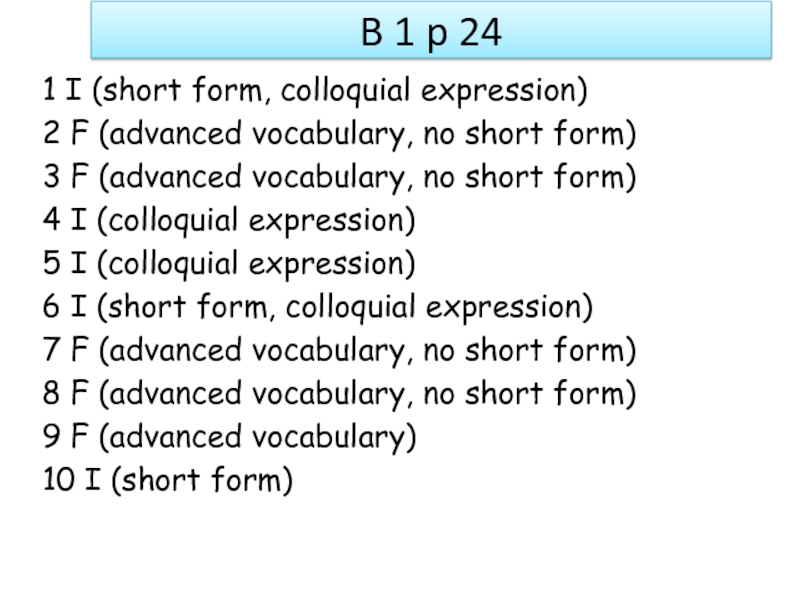- Главная
- Разное
- Дизайн
- Бизнес и предпринимательство
- Аналитика
- Образование
- Развлечения
- Красота и здоровье
- Финансы
- Государство
- Путешествия
- Спорт
- Недвижимость
- Армия
- Графика
- Культурология
- Еда и кулинария
- Лингвистика
- Английский язык
- Астрономия
- Алгебра
- Биология
- География
- Детские презентации
- Информатика
- История
- Литература
- Маркетинг
- Математика
- Медицина
- Менеджмент
- Музыка
- МХК
- Немецкий язык
- ОБЖ
- Обществознание
- Окружающий мир
- Педагогика
- Русский язык
- Технология
- Физика
- Философия
- Химия
- Шаблоны, картинки для презентаций
- Экология
- Экономика
- Юриспруденция
Dialectal words презентация
Содержание
- 1. Dialectal words
- 2. Dialectal words - are the variety of
- 3. Dialectal words Some dialectal words have become
- 4. Dialectal words Dialect, colloquialisms, and slang have much in
- 5. Dialectal words Regional dialect e.g British vs American
- 6. Old British Dialect Words to Incorporate into
- 7. Modern British English dialectal words Sing-small This
- 8. Geet Geet Geet walla This simply means
- 9. "Aussie" and "Murican" and Kiwi dialects ‘Ow ya
- 10. Megabucks This means “a lot of money”,
Слайд 2Dialectal words - are the variety of a language that a
Dialects can be distinguished one from another by way of:
Grammar
Pronunciation
Syntax
Vocabulary
If there’s only a difference in pronunciation, this is just an example of different accents. Note also that dialect refers to a group of people; the specific speech patterns of an individual are called an idiolect.
Слайд 3Dialectal words
Some dialectal words have become so familiar in standard colloquial
For example word lass meaning 'a girl or a beloved girl' and the corresponding lad, 'a boy or a young man'
Dialectal words are only to be found in the style of emotive prose, very rarely in other styles.
And even here their use is confined to the function of characterizing personalities through their speech.
Слайд 4Dialectal words
Dialect, colloquialisms, and slang have much in common in that they all
Try not to confuse them!
Слайд 5Dialectal words
Regional dialect
e.g British vs American
Class dialect
e.g Upper/MIddle/Lower class on a social
Example of lower-class British English: "I ain't"
Temporal dialect
e.g Whether a person belongs to an old or a young generation, to the sixteenth or twentienth century etc.
Слайд 6Old British Dialect Words to Incorporate into Conversation
DAUNCY: If someone looks
FLOBY-MOBLY: The perfect word for describing the feeling of not being unwell, but still not quite feeling your best
WEATHER-MOUTH: A bright, sunny patch of sky on the horizon flanked by two dense banks of cloud is the weather-mouth. (Scots)
BANG-A-BONK: It might not look like it, but this is a verb meaning “to sit lazily on a riverbank.” (Gloucestershire)
ZWODDER: The last entry in the English Dialect Dictionary describes “a drowsy, stupid state of body or mind.” It’s probably related to another word, swadder, used to mean “to grow weary with drinking.” (SW England)
Слайд 7Modern British English dialectal words
Sing-small
This means “to put up with less
Fella
The word “fella” refers to a man, either in the third person (“your auld fella” would mean “your father”, as in the more widely used “old man” to mean father), or directly, as in “you alright fella?” (city of Liverpool and its surrounding counties).
Chocka
This means “very busy” (as in “the station was chocka”) and it comes from the longer expression “chock-a-block”, which is actually of 19th century nautical origin and is heard more widely around the UK (city of Liverpool).
Слайд 8Geet Geet Geet walla
This simply means “very big”, as in “there’s
Eee by gum
This essentially means “oh my God”, and it’s the phrase all non-Yorkshire people say when they want to replicate this distinctive dialect.
Oh aye?
This means “oh really?” and is generally an expression of surprise, that might be uttered with a raised eyebrow.
Слайд 9"Aussie" and "Murican" and Kiwi dialects
‘Ow ya goin’?
In the UK, we might
Sheila
This woman’s name is used in Australia to refer to any female person.
Flipped Flipped Flipped out
This describes an angry reaction to something, as in, “He flipped out when I told him I was leaving.” (American)
Слайд 10Megabucks
This means “a lot of money”, as in “he’s on megabucks
Totaled
You can work out the meaning of this word from the context: “I totaled my car when I hit a tree”. It means completely wrecked, resulting in what we would call in the UK, “a write-off” – a car so badly damaged that the cost of repairing it exceeds the value of the car. (American)
Kia Ora
This is a Maori greeting meaning “hello”, but it’s common to see it around New Zealand used in an English context. (Kiwi)
Hard yakka
This is a way of saying “hard work”.

